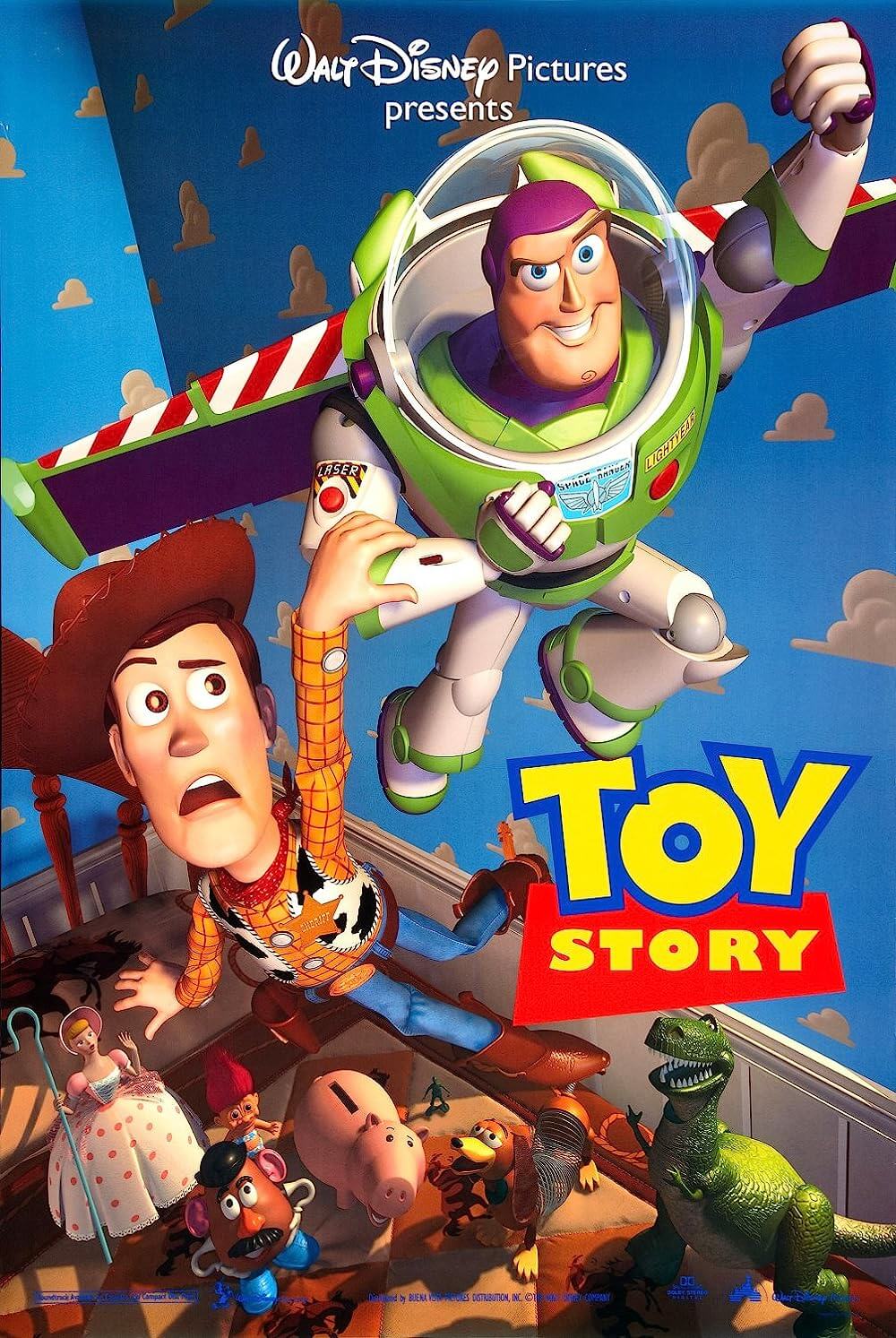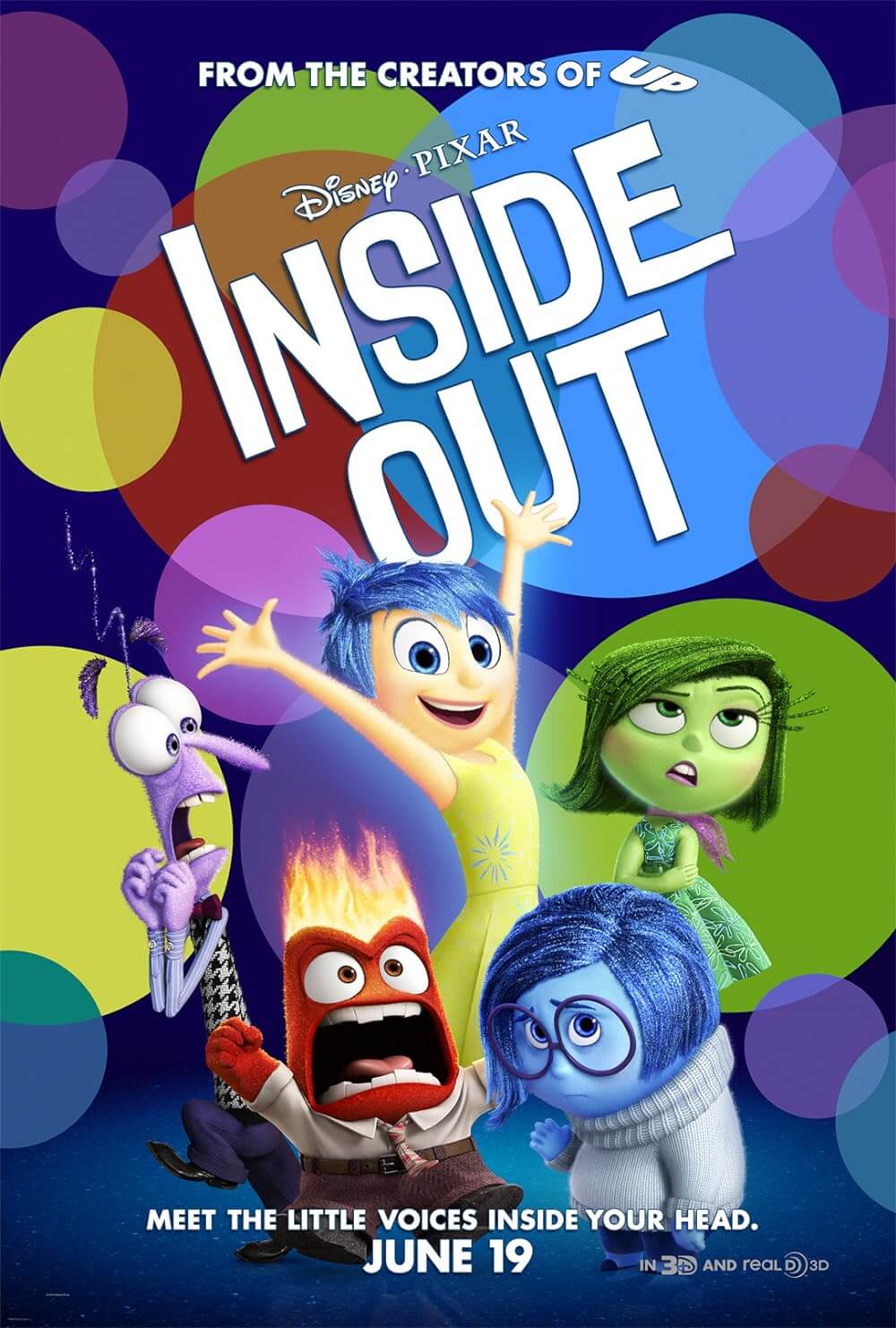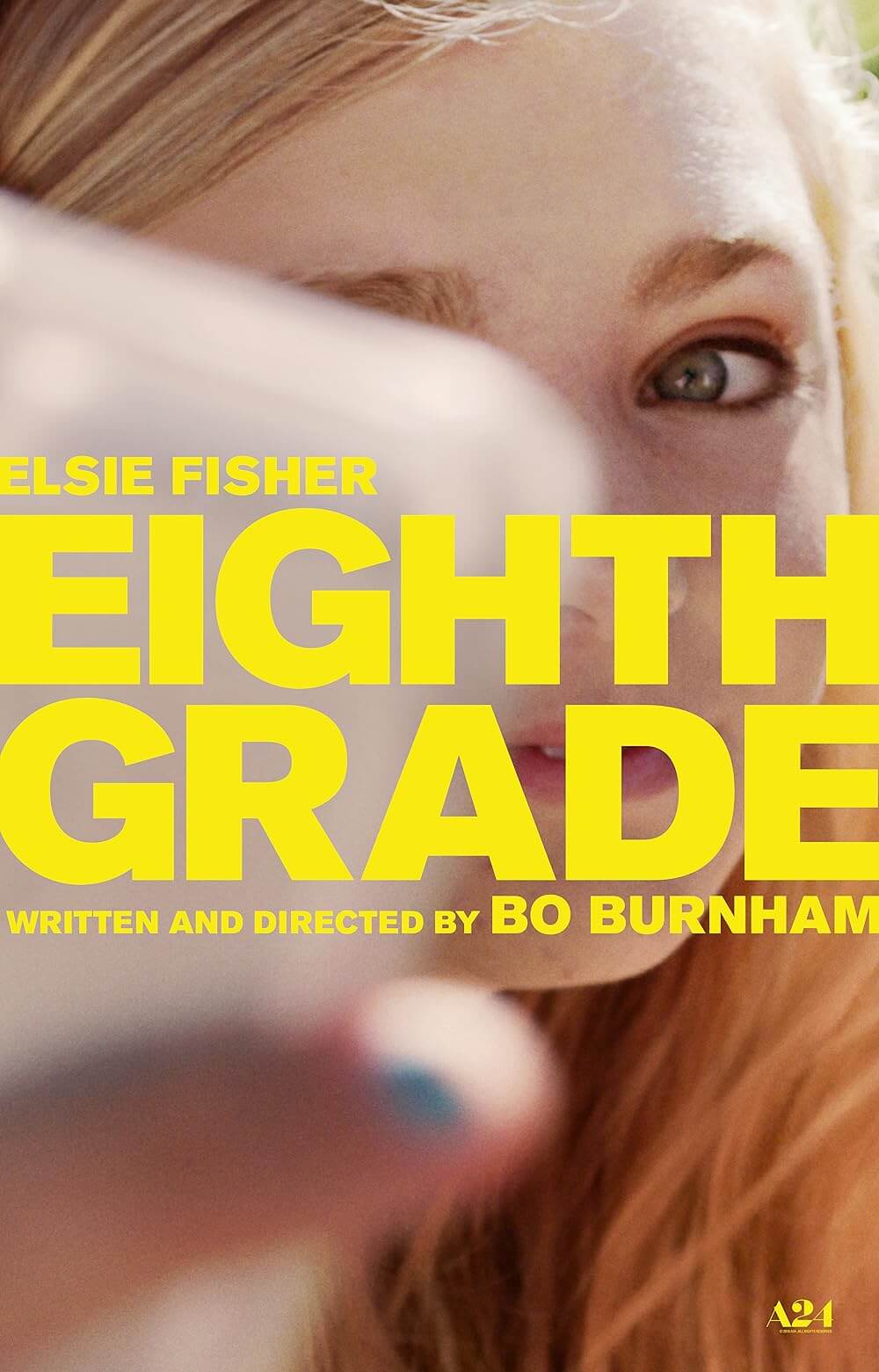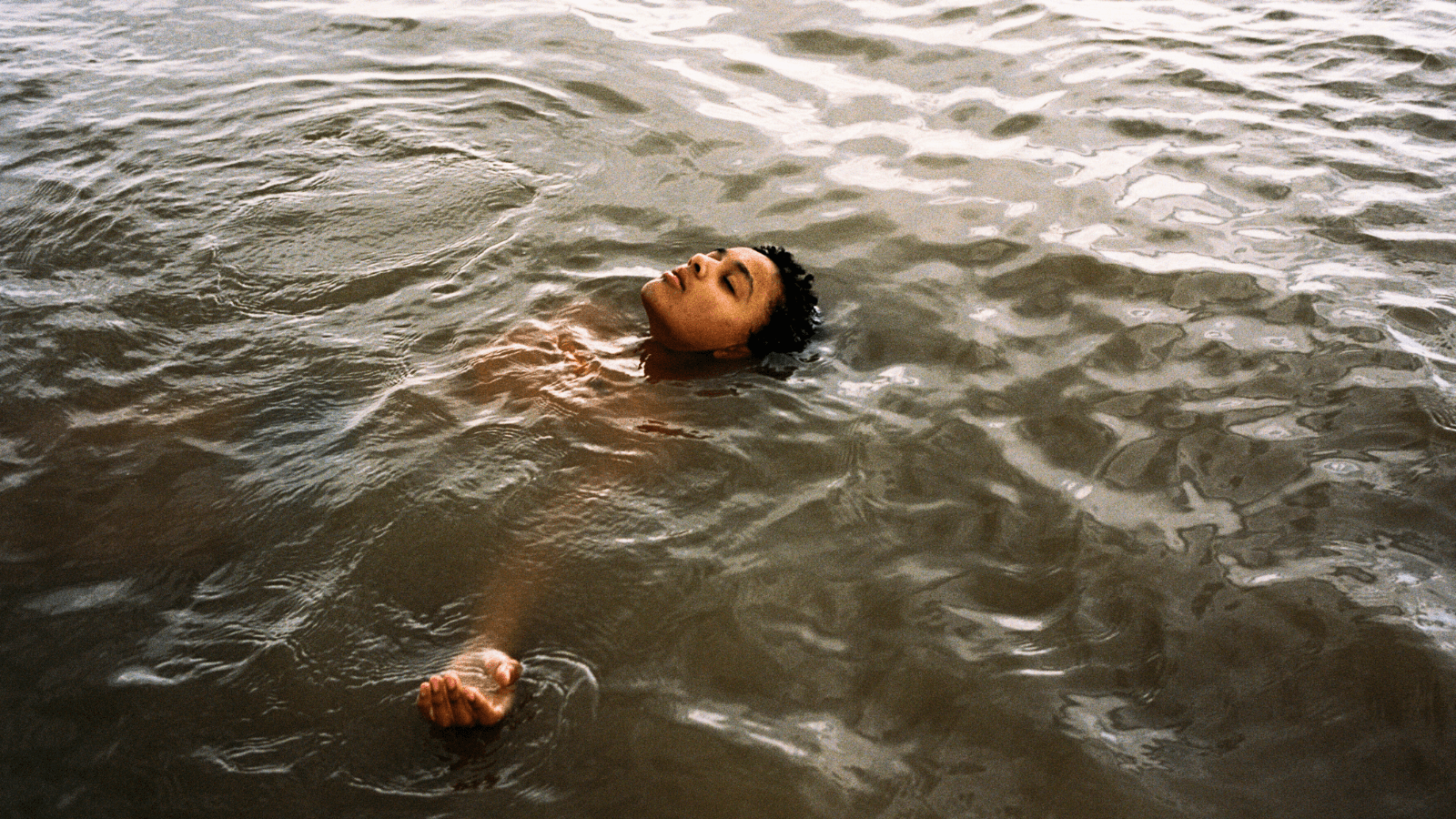
Bird
By Brian Eggert |
Andrea Arnold does not spare her audience, nor does she look away. When the UK-based filmmaker puts her subject on display, she considers their world with honesty and empathy, no matter how grim. Her worlds can be ugly, predatory, unforgiving, and harsh. They can also be beautiful and poetic, filled with a sense of emerging selfhood and hope that defies their bleaker aspects. In another of her naturalistic portraits of a young woman struggling to find her way, Bird furthers Arnold’s unmistakable visual and thematic concerns while revealing new and unexpected items in her bag of tricks. Premiering at the 2024 Cannes Film Festival, where Mubi acquired it for distribution in the US, Bird is, ultimately, unlike any other Arnold film. That’s reassuring for admirers who want to see her grow as an artist and filmmaker. However, her latest film contains moments that might register as silly, fantastical, or even trivial to devoted viewers, imbuing the otherwise authentic storytelling that defines her work with a little magic.
It seems strange that Bird is only Arnold’s fifth feature-length dramatic film. Her name has been synonymous with bold social realism for nearly two decades. Since her debut, Red Road (2006), Arnold has been strikingly consistent in achieving harmony between her aesthetic and subject matter. The uniformity of her output carries through her best film, Fish Tank (2009), winner of the BAFTA for Best British Film in 2010, and even defines her spare 2011 adaptation of the Emily Brontë novel, Wuthering Heights. But Arnold is hardly a prolific director. After American Honey (2016)—her dazzling feature that follows Sasha Lane, Shia LaBeouf, and Riley Keough on a mission to sell magazines in the United States—she dabbled in television (including Big Little Lies on HBO) and nonfiction. Her documentary Cow (2021) was an empathetic but unflinching look at the life of a dairy cow. And while it’s a given that one should use the word “unflinching” to describe Arnold’s work, Cow proved uniquely difficult to endure for her refusal to look away.
As though producing a tonic for those who survived Cow with their hearts intact, Bird is Arnold’s most hopeful and accessible film to date. At first glance, it might not appear that way. For much of the two-hour runtime, the film plays like another of Arnold’s examinations of people living on the margins of society, scraping by and mostly forgotten. Newcomer Nykiya Adams stars as Bailey, a 12-year-old girl who lives in a graffitied-up husk of a building with her father, Bug (Barry Keoghan). Covered in body and face tattoos, her loving but chaotic father announces plans to marry his girlfriend of a few months. He also hatches a scheme to exploit a “cash cow”—a large toad he imported for its unique hallucinogenic properties. But Bug discovers he must sing to get the amphibian to excrete its psychedelic juices. Cue an in-joke to “Murder on the Dance Floor,” the song that played over Keoghan’s famous nude dance in last year’s Saltburn.
In any case, Arnold’s story follows Bailey, who transitions from childhood to adolescence in an unforgiving environment. Arnold’s social consciousness emerges in scenes involving Hunter (Jason Buda), Bailey’s half-brother whose gang of young upstarts attacks a rival group in a violent sequence. There’s also Peyton (Jasmine Jobson), Bailey’s mother, who lives with Skate (James Nelson-Joyce), Peyton’s volatile and abusive boyfriend. And how does Bailey manage her first period with no one around to explain or help? Her future stepmom gives her a tampon and says, “You’ll live.” In these surroundings, Bailey needs an escape. Like most teens, she spends a lot of time on her phone. But rather than getting lost on social media or YouTube, Bailey records small moments of beauty, such as birds and, in one dreamlike sequence, horses. Then she projects that footage onto her bedroom wall, as though creating a private cinema where she’s both the filmmaker and the spectator.
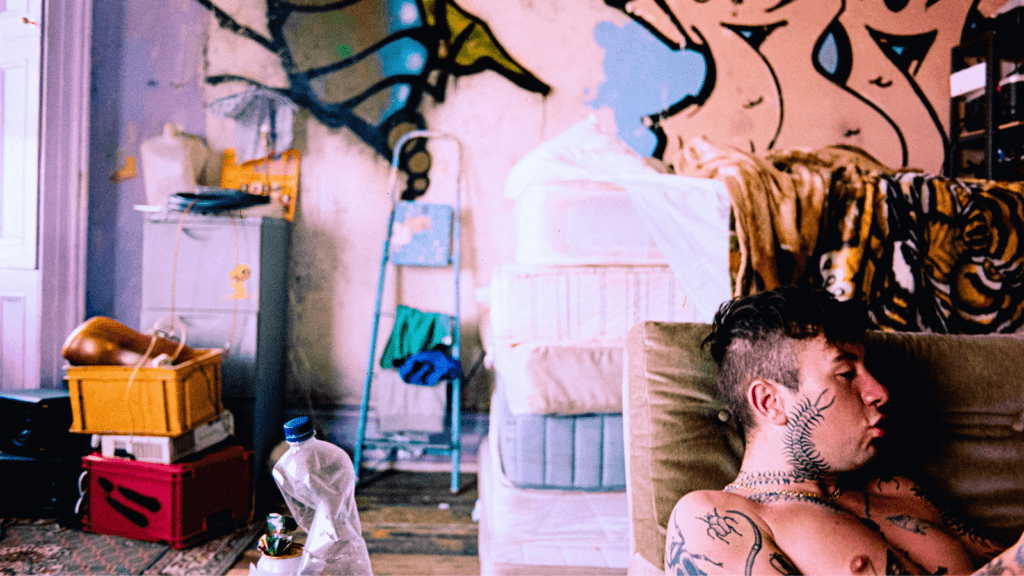
One day, in a field, some uncanny gusts of wind preface Bailey’s meeting with a wandering free spirit named Bird (Franz Rogowski). Sprightly and pleasant, Bird frolics about in his fashionable kilt. He might be unnerving except for Rogowski’s gentle, considerate screen presence and Bailey’s (eventual) sense of ease around him. Later, he shares a story about his search for his long-lost parents. He lingers around, prompting Bailey to inquire about his parents on his behalf. The story goes in some curious directions for Arnold, veering into magical realism, arriving somewhere in the vein of Drop Dead Fred (1991) and The Animal Kingdom (2023) by way of Ken Loach’s Kes (1969). Although it’s always a pleasure to see filmmakers push their boundaries and try something new, in this case, Arnold’s grasp of the fantastical elements feels off in ways challenging to articulate. They just don’t work.
Reteaming with cinematographer Robbie Ryan, who shot each of the director’s previous films except for Cow, Arnold blends styles like never before. Of course, the production offers the usual trappings, too. Ryan’s kinetic and gritty camerawork is presented with a limited aspect ratio and rounded, frayed corners. Most of Arnold’s films since Fish Tank have been presented in either boxy 1.33:1 or 1.37:1 aspect ratios, so Bird’s 1.66:1 frame feels expansive. That aesthetic is offset by portrait-view video from Bailey’s phone, usually of seagulls. Bailey also records a fly buzzing against a window, then another curled up, having fought for escape only to die. The metaphor couldn’t be more transparent—Bailey identifies with the fly but longs to be a bird. Nykiya Adams is a tremendous discovery, just as Sasha Lane and Katie Jarvis were. She evokes Bailey’s unshakable inner confusion and desperate yearning to escape. The same is true of Bird’s transformation; however, he’s later realized with some iffy CGI that threatens to neutralize the emotional impact and sense of reality. Otherwise, Ragowski and Keoghan’s familiar faces never distract or betray these authentic surroundings, blending effortlessly.
Each of Arnold’s coming-of-age stories about downtrodden girls, from Fish Tank to American Honey, has a surprising optimism about the future, but none more so than Bird. This is a dreamlike and hopeful film, even though it also features moments of danger and dread. More than one domestic disturbance in Bird feels jarring, and the somewhat casual presence of a dead dog left me unsettled. Still, Arnold balances her film’s stark minimalism and themes of seclusion with imagination and joy, including an unlikely group performance of Coldplay’s “Yellow” and an earnest bond between Bug and Bailey. Notice also the recurring motif throughout the film, shown in graffiti or fingered onto a dirty window, as though Arnold had a message for her character: “Don’t You Worry.” What’s reassuring for Bailey is that, no matter her situation, Arnold sees a way out for her.
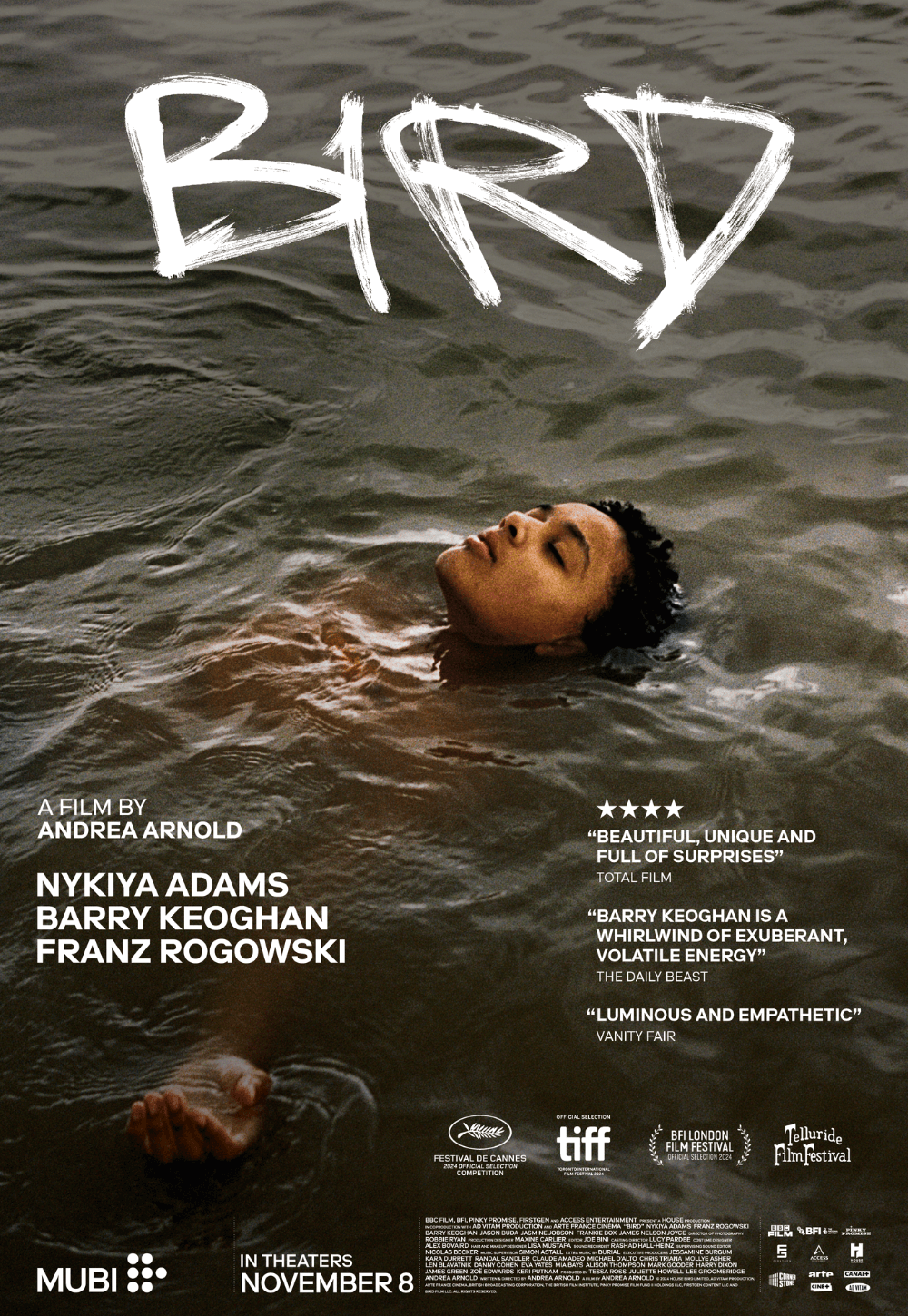
Thank You for Supporting Independent Film Criticism
If the work on DFR has added something meaningful to your love of movies, please consider supporting it.
Here are a few ways to show your support: make a one-time donation, join DFR’s Patreon for access to exclusive writing, or show your support in other ways.
Your contribution helps keep this site running independently. However you choose to support the site, please know that it’s appreciated.
Thank you for reading, and for making this work possible.
Brian Eggert | Critic, Founder
Deep Focus Review


